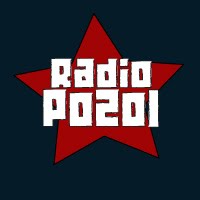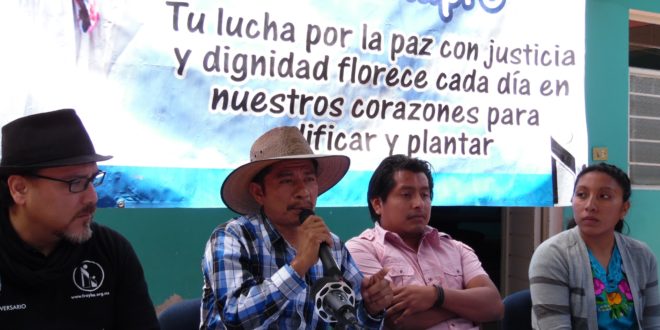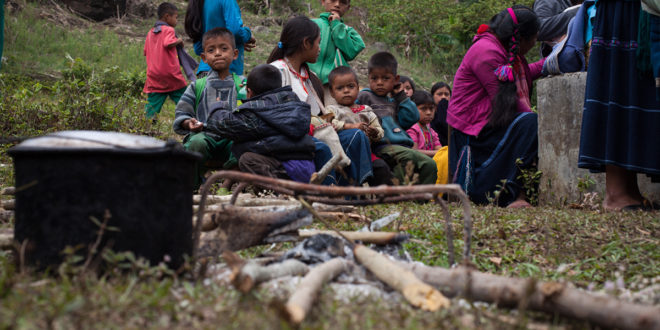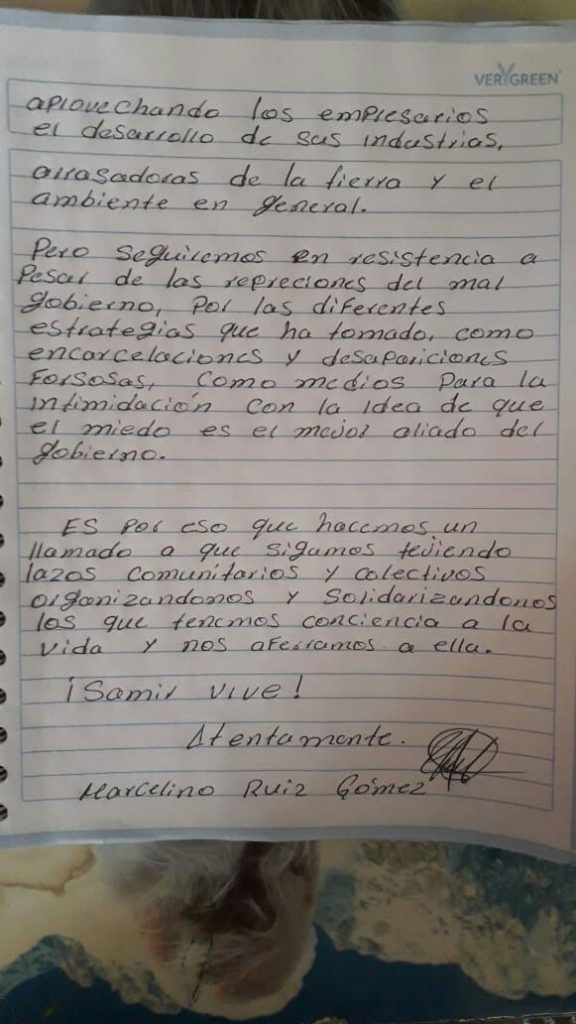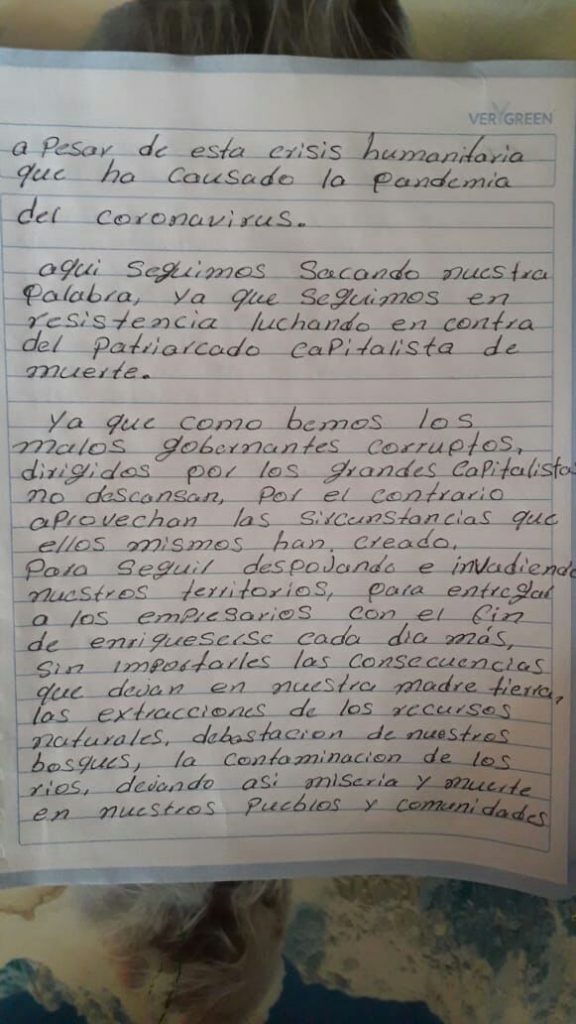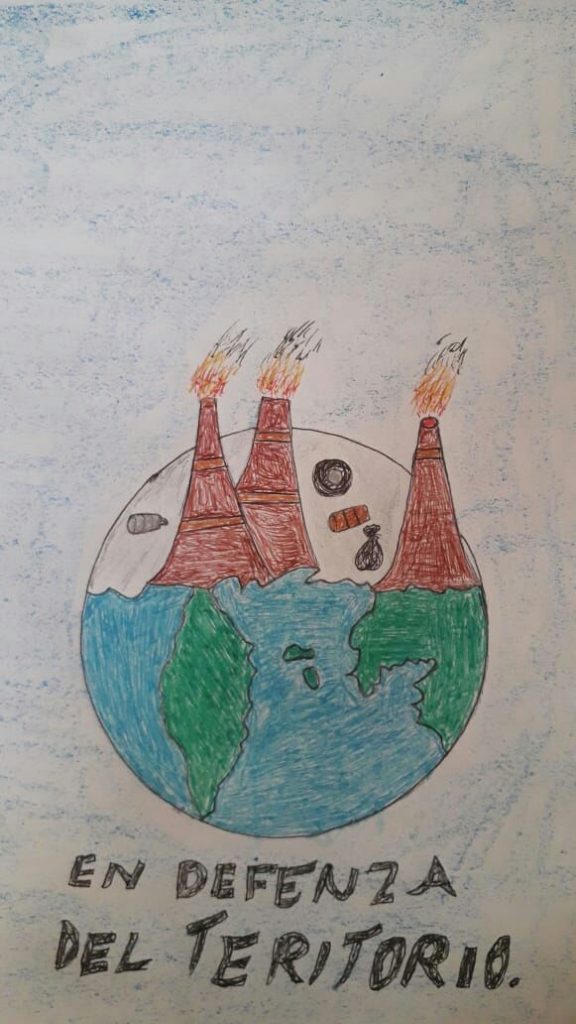
Pueblos Indígenas
(Español) Escucha TEJIENDO VOCES transmisión colectiva del Congreso Nacional Indigena
Escucha TEJIENDO VOCES transmisión colectiva del Congreso Nacional Indigena
con el tema:
Megaproyectos contra los pueblos en la emergencia sanitaria
Miércoles 20 de Mayo de 2020 desde las 5 pm.
#ElEncierroNoMeCalla
#NuncaMasUnMexicoSinNosotr
Escuchalo y difunde desde la pagina del CNI
www.congresonacionalindige
por el facebook: fb.com/
(Español) CNI EXIGE LA CANCELACIÓN DE CONCESIONES MINERAS EN TERRITORIO DEL PUEBLO NAHUA DE LA SIERRA NORTE DE PUEBLA Y EN TODO MÉXICO
A los pueblos de México y del Mundo,
A los medios de comunicación.
La Coordinación del Congreso Nacional Indígena/Concejo Indígena de Gobierno, así como diversas organizaciones integrantes del Congreso Nacional Indígena saludamos a nuestras hermanas y hermanos del pueblo nahua de la Sierra Norte de Puebla y a su digna lucha por anular las concesiones mineras que el mal gobierno capitalista, de antes y de hoy, entregó a los dueños del dinero apoyado en una Ley Minera que nació de la traición a los Acuerdos de San Andrés y de la violación a nuestros derechos fundamentales, sin importarle que se destruya el medio ambiente, que se devasten culturas y que se agote la esperanza de la vida; esa que los pueblos hablamos cuando emprendemos juicios o alzamos la voz de todas las formas que tenemos a nuestro alcance.
De frente a las condiciones adversas que vivimos como humanidad y ante la proliferación de la enfermedad llamada capitalismo que hoy se expresa en la pandemia del Covid-19 y que amenaza la vida en el planeta, profundizando su presencia en todos los rincones; asumimos y asumiremos ineludiblemente cuidar, defender y sanar a nuestra madre tierra. En ese sentido es que hacemos propias las exigencias del pueblo nahua de los municipios de Cuetzalan del Progreso, Tlatlauquitepec y Yaonáhuac, Puebla, de que sean anuladas todas las concesiones mineras que amenazan la vida de la región, haciendo extensivas estas exigencias a las concesiones que existen en todo el territorio nacional.
Asimismo reconocemos y respaldamos la lucha de los Consejos Maseual Altepetajpianij y Tiyat Tlali, así como del Comité de Ordenamiento Territorial Integral de Cuetzalan y de las organizaciones que los apoyan, exigiendo que la Suprema Corte de Justicia de la Nación declare la inconstitucionalidad de la Ley Minera, recordando que las leyes impuestas por los malos gobiernos no respetan los derechos colectivos que tenemos los pueblos originarios, pues, lo único que sí respetan es la ganancia ensangrentada de las grandes empresas.
Llamamos a los colectivos y organizaciones honestas y a los pueblos del mundo a estar atentos de las resoluciones y acciones que el corrompido poder judicial y el mal gobierno lleguen a adoptar, así como de la palabra de nuestras compañeras y compañeros del pueblo nahua de la Sierra Norte de Puebla para actuar con solidaridad.
Atentamente
Mayo de 2020
Por la Reconstitución Integral de Nuestros Pueblos
Nunca Más Un México Sin Nosotros
Coordinación del Congreso Nacional Indígena/Concejo Indígena de Gobierno
Centro de Derechos Humanos de los Pueblos del Sur de Veracruz “Bety Cariño”
Proceso de Articulación de la Sierra de Santa Marta, Veracruz
Centro Comunitario U kúuchil k Ch’i’ibalo’on, Quintana Roo
Resistencia Civil de Candelaria, Campeche
Asamblea de Pueblos Indígenas del Istmo en Defensa de la Tierra y el Territorio, Oaxaca
Coordinadora de Pueblos y Organizaciones del Oriente del Estado de México en Defensa de la Tierra, el Agua y su Cultura, Estado de México
Movimiento Agrario Indígena Zapatista
Consejo Indígena y Popular de Guerrero-Emiliano Zapata
Red Unidos por los Derechos Humanos, A. C., Veracruz
Unión de Pueblos y Comunidades Purepechas, Ciudad de México y Michoacaán
Consejo Supremo Indígena de Michoacán
Servicios para una Educación Alternativa, A. C.
Consejo Regional Indígena y Popular de Xpujil, Campeche
Unión de Comunidades Indígenas de la Zona Norte del Istmo, Oaxaca
Casa de Salud de la Comunidad Indígena de Tuxpan, Jalisco.
Comuna Purépecha
Autoridades Tradicionales de la Tribu Yaqui, Pueblo de Vicam


